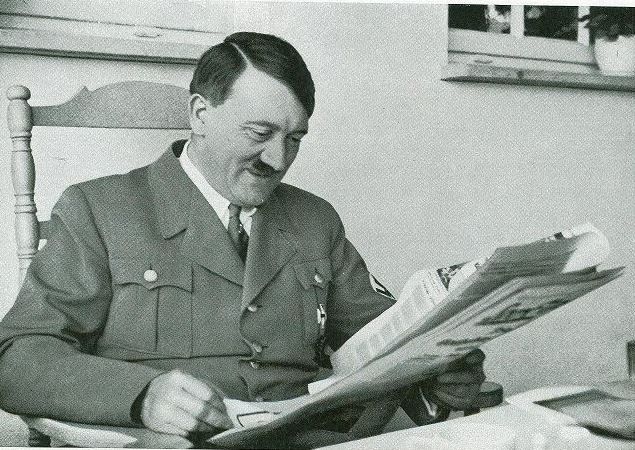Thursday 31 August 1939
 |
| Alfred Naujocks and the Gleiwitz radio tower. |
With the diplomatic pretext working, the German High Command (OKW) issues final orders for Case White, the invasion of Poland, just after noontime. Negotiations via Birger Dahlerus continue with the British virtually around the clock. As expected, the Polish refusal to consider the Sixteen Points immediately (as demanded) is used by the Germans in an attempt to fracture Western support for Poland. There are a few very subtle signs of this possibly happening, as the British at least keep talking to Dahlerus in London and make vague statements that leave open the possibility of further negotiations.
Germany, military affairs: With negotiations sputtering along with Great Britain to prevent it from honoring its defense obligations to Poland, Adolf Hitler on 28 August rescheduled Case White (the invasion of Poland) for 1 September 1939. However, in a desire to create a military pretext for the invasion (in addition to the diplomatic pretext), several months previously he had asked his SS chief Heinrich Himmler to craft a sequence of border "incidents" to "justify" military action. Collectively, these incidents would proceed under the code name "Operation Himmler." In later parlance, these are "false flag" operations, perhaps the first in history.
One of these incidents, and the most notorious, was Operation Grandmother Died ("Unternehmen Grossmutter Gestorben"). This would involve a supposed Polish attack on a German radio station that was close to the border at Gleiwitz. Why the Poles would suddenly attack a random German radio station was unclear, but it made sense to the Germans.
SS-Sturmbannfuhrer (Major) Alfred Naujocks organizes the plan. He uses one Franciszek Honiok, a Catholic Polish farmer who had proven troublesome to local German authorities in Silesia. Honiok had been arrested the previous day on a pretext. On 31 August, he is given a lethal injection and then, dressed in a Polish uniform, driven to the radio station. There, he is shot multiple times and left on the station steps. Afterward, Naujocks has someone broadcast a message in Polish urging an invasion of Germany. Then, he and his soldiers leave. The incident forms a major pretext (a "provocation") for Hitler's speech to the Reichstag the following morning "justifying" the unprovoked German invasion of Poland.
By some interpretations, Honiok becomes the first casualty of World War II.
 |
| Franciszek Honiok. |
Pre-War
8-9 November 1923: Beer Hall PutschDecember 20, 1924: Hitler Leaves Prison
September 18, 1931: Geli Raubal Commits Suicide
November 8, 1932: Roosevelt is Elected
30 January 1933: Hitler Takes Office
February 27, 1933: Reichstag Fire
March 23, 1933: The Enabling Act
June 20, 1934: Hitler Plans the Night of the Long Knives
June 30, 1934: Night of the Long Knives
August 1, 1936: Opening of the Berlin Olympics
September 30, 1938: The Munich Agreement
November 9, 1938: Kristallnacht
August 1, 1939: Flight Tests of B-17 Flying Fortress
August 2, 1939: Einstein and the Atom Bomb
August 7, 1939: Goering Tries to Broker Peace
August 14, 1939: Hitler Decides To Attack Poland
August 15, 1939: U-Boats Put To Sea
August 16, 1939: Incident at Danzig
August 20, 1939: Battle of Khalkhin Gol
August 22, 1939: Hitler Tips His Hand
August 23, 1939: Ribbentrop-Molotov Pact
August 25, 1939: Hitler Postpones Invasion of Poland
August 27, 1939: First Jet Flight
August 31, 1939: The Gleiwitz Operation
September 1939
September 1, 1939: Invasion of PolandSeptember 2, 1939: Danzig Annexed
September 3, 1939: France, Great Britain Declare War
September 4, 1939: First RAF Raid
September 5, 1939: The US Stays Out
September 6, 1939: Battle of Barking Creek
September 7, 1939: Polish HQ Bugs Out
September 8, 1939: War Crimes in Poland
September 9, 1939: The Empire Strikes Back
September 10, 1939: The Germans Break Out
September 11, 1939: Battle of Kałuszyn
September 12, 1939: The French Chicken Out
September 13, 1939: The Battle of Modlin
September 14, 1939: Germany Captures Gdynia
September 15, 1939: Warsaw Surrounded
September 16, 1939: Battle of Jaworów
September 17, 1939: Soviets Invade Poland
September 18, 1939: Lublin Falls
September 19, 1939: Germans, Soviets Hook Up
September 20, 1939: the Kraków Army Surrenders
September 21, 1939: Romania Convulses
September 22, 1939: Joint Soviet-German Military Parade
September 23, 1939: The Panama Conference
September 24, 1939: The Luftwaffe Bombs Warsaw
September 25, 1939: Black Monday for Warsaw
September 26, 1939: Warsaw on the Ropes
September 27, 1939: Hitler Decides to Invade France
September 28, 1939: Warsaw Capitulates
September 29, 1939: Modlin Fortress Falls
September 30, 1939: Graf Spee on the Loose
2019




